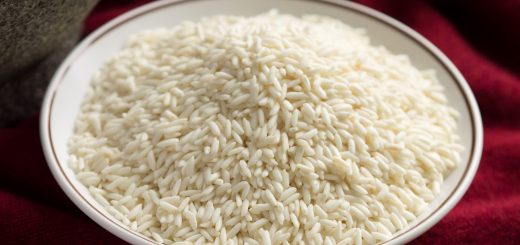Cognitive disorders: definition, symptoms, treatment
Summary
– Cognitive Impairment: Definition
– Symptoms of cognitive disorders
– Main cognitive disorders
– Cognitive disorders: what treatments?
– Prevention of cognitive disorders
Many cognitive disorders of varying intensity are linked or not to a brain injury.
Let’s discover the definition of a cognitive disorder, the different symptoms, the leading cognitive disorders, the possible treatments, and the means of prevention.
Cognitive disorders: definition
A cognitive disorder is an alteration of brain functions and, in particular, of memory. It can also be translated by a slowing down of the thought process.
A cognitive disorder can be due to aging, cerebral trauma, or to illness. When it is linked to age, the cognitive disorder may remain moderate and not necessarily develop into dementia.
Moreover, a new term has recently been approved at the international level: “cognitive frailty”. It associates the notion of frailty and cognitive disorders in the same individual, suggesting partly common processes, notably via inflammation and oxidative stress.
Good to know: drug intoxication can cause a cognitive disorder.
Symptoms of cognitive disorders
It is necessary to detect the symptoms of a mild cognitive disorder, especially if it affects memory, to prevent the person from developing a more serious disease such as Alzheimer’s. People with cognitive impairment tend to :
– forget their phone number, a person’s name, a question asked, information just read or heard, an appointment, or what they did during the day;
– Be prone to mood swings;
– Confusing those around them;
– use inappropriate words;
– get organized;
– be temporally and spatially disoriented;
– perform routine tasks, whether in the private or professional sphere;
– misplacing objects because they forget where they have stored them.
It is important to note that the symptoms of cognitive impairment are extremely variable, depending on the affected area of the brain.
Good to know: a person with a cognitive disorder is likely to take his or her medication several times or not at all. The people around them must therefore be attentive.
Main cognitive disorders
Here are the main cognitive disorders indicated by the Diagnostic and Statistical Manual of Mental Disorders (DSM):
– Dementia: This is sometimes genetic. It can also be due to a stroke or brain trauma. But in the majority of cases, the origin of dementia is pathological (Parkinson, Alzheimer, Huntington’s). These diseases deteriorate cerebral functions.
– Amnesia: it can be caused by a cerebral trauma, alcoholism, or a major shock, also called “concussion”.
– Delirium: it is caused by alcoholism and, more generally, by the abusive absorption of psychotropic drugs, but also by sleep deprivation, a psychological disorder, or inactivity.
Good to know: although psychosis, mood disorders, and anxiety disorders affect cognitive functions, they are not considered cognitive disorders by the DSM. Indeed, they do not have as a major symptom the alienation of the cognitive function.
Cognitive disorders: what treatments?
The treatment of a cognitive disorder depends on its cause and brain lesions.
The treatment consists of medication combined with therapy.
In some cases, a cure is possible. In other cases, especially for some amnesias, treatment may alleviate the symptoms but not lead to a cure.
Good to know: cases of reversible dementia have been observed when the condition is due to nutritional imbalance, depression, infection, drug intoxication, or cardiovascular disease.
Prevention of cognitive disorders
Reducing risk factors
It is possible to prevent cognitive decline by reducing the number of factors responsible, as demonstrated by numerous scientific studies, including the Syst-Eur study. It is therefore strongly recommended to
– to manage stress, depression, diabetes, high blood pressure, hypothyroidism, and all chronic pathologies because accumulating diseases potentially increases the risk of cognitive disorders;
– avoid drug interactions (beware of antidepressants and antiparkinsonian drugs, as well as proton pump inhibitors when they are taken for a long time or repeatedly);
– adopt a healthy lifestyle:
◦ sleep, nap for one hour (no more) after the midday meal in those over 65 years of age,
◦ balanced diet (the Mediterranean diet is known for its benefits in protecting cognitive functions and reducing the risk of depression),
◦ moderate alcohol consumption (three glasses per day maximum), no smoking;
– to practice physical activity regularly (physical exercise causes muscles to secrete a hormone, irisin, which has beneficial effects on synaptic plasticity and memory);
– enrich social life;
– manage hearing loss;
– maintain sufficient intellectual activity throughout life;
– to keep time for leisure activities;
– to fight against boredom and sedentariness;
– to prevent as much possible head trauma and other concussions, which considerably increase the risk of dementia (+24%) and Alzheimer’s disease (+16%) in the future.
Good to know: the more you implement solutions to fight against the risk factors of cardiovascular diseases (physical activity, good diet, weight control, good blood pressure, etc.), the more the risk of brain damage decreases. An INSERM study shows that, compared to the group with a low level of cardiovascular health, individuals with an intermediate level and those with an optimal level had a 39% and 43% lower risk of dementia, respectively.
Note that it is also vital to have an adequate intake of B vitamins. Indeed, a deficiency multiplies the risk of dementia.
The action of caffeine on brain function
Caffeine acts on the brain’s functioning, and many studies have shown that it favors vigilance, attention, speed of information processing, reactivity, endurance to physical exercise, and mood.
Other findings support the beneficial role of long-term caffeine consumption in preserving memory and delaying age-related cognitive decline. Caffeine could also positively impact certain neurodegenerative diseases and has been associated with a reduced risk of Alzheimer’s and Parkinson’s disease.
Source: Ribeiro J. et al. Caffeine and adenosine. Journal of Alzheimer’s Disease 20 (2010) S3-S15. DOI 10.3233/JAD-2010-1379.
Ginkgo biloba oxygenates the brain

In addition, ginkgo Biloba leaves in the form of a standardized extract (EGb 761), by allowing better brain oxygenation, would help slow down cognitive decline. However, according to a journal, Ginkgo biloba, used to treat cognitive disorders in elderly patients, has no proven efficacy beyond that of a placebo but exposes patients to hemorrhages, digestive or skin disorders, convulsions, and hypersensitivity reactions.
The protective action of bacopa and saffron
In the same vein, bacopa, used in Ayurvedic medicine, is rich in bacosides that protect the brain from free radical damage by stimulating the activity of antioxidant enzymes. They act on the hippocampus (an area involved in memory), the striatum (a decision-making area), and the prefrontal cortex (an area related to emotions and mood).
It is generally recommended to take two capsules of bacopa every morning for one month, every other month.
Beneficial effects have been confirmed in various experimental models of Alzheimer’s disease. They have shown better learning and memorization capacities and a decrease in the loss of neurons in the brain, particularly in the hippocampus. Similarly, saffron has relatively powerful antioxidant and anti-inflammatory effects.
Source: Zhang, D. et al. Inflamm. RES. 69, 267-278 (2020).
In the same vein, ashwagandha, a plant used in Ayurvedic medicine, is said to promote the regeneration of neurons and delay cognitive decline. This plant can be found in the form of capsules or powder to be taken in three-month courses.
Hericium Erinaceus, the neuroprotective and neuroregenerative mushroom
Hericium Erinaceus is a mushroom known as “lion’s mane” and commonly called “houtou”. It has been prescribed in traditional Chinese medicine (TCM) for 2,000 years.
It is rich in polysaccharides, proteins, lectins, phenols, and terpenoids (especially hericenones and erinacins) which have neuroprotective and neuroregenerative activities. In addition, it stimulates the synthesis of nerve growth factor (NGF), a protein involved in the prevention of neuronal death and which contributes to the maintenance and proper functioning of neurons.
Japanese research has shown that supplementing 250 mg of Hericium Erinaceus powder daily, rich in hericenone, significantly improves cognitive function.
Source: Neuroregenerative potential of lion’s mane mushroom, Hericium Erinaceus (Bull.: Fr.) Pers. (higher Basidiomycetes), in treating peripheral nerve injury (review).
Even better, a Taiwanese team proved that the supplementation of three capsules (350 mg) per day of Hericium Erinaceus mycelium enriched in erinacin A improved contrast sensitivity, a vision disorder frequently observed in Alzheimer’s disease.
Source: Early Alzheimer’s Disease Prevention by Erinacin A-Enriched Hericium Erinaceus Mycelia Pilot Double-Blind Placebo-Controlled Study, 2020.
Meditation against brain aging
Meditation has a positive effect on brain aging (by allowing a reduction of stress, anxiety, negative emotions, and sleep problems). One study showed that brain regions with greater volume or metabolism in meditators are precisely those that decline the most with age.



